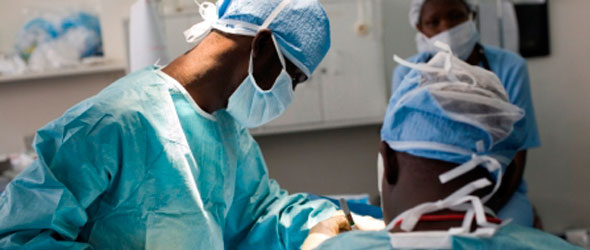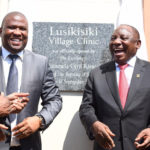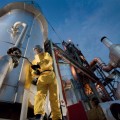Johannesburg – Government is looking at increasing the number of doctors produced by the country to ensure the success of the National Health Insurance (NHI) scheme.
Speaking at a New Age business briefing on Monday, Health Minister Dr Aaron Motsoaledi acknowledged that the skills shortage issue was phenomenal. He said South African medical schools were currently only producing 1 000 per annum.
“Five medical schools are to be rebuilt and start producing 3 600 doctors per annum as a start, and the universities are to start taking extra medical students,” Motsoaledi said.
Finance Minister Pravin Gordhan, in his Budget Speech in February, put aside R450 million to upgrade about 30 nursing colleges and R426 million was allocated for the initial work on rebuilding five major tertiary hospitals – including Chris Hani Baragwanath Academic in Johannesburg, King Edward in Durban, Dr George Mukhari in Pretoria, Limpopo Academic and Nelson Mandela Academic in Mthatha.
An amount of R1.2 billion was allocated to refurbish nursing training colleges to deal with the shortage of nurses.
On what is going to be happening during the first five years of the pilot, Motsoaledi said the department will be focusing on overhauling the public health care system and regulating the prices for health care services.
He explained that before the pilot programme kicked off on 1 April, the department met with the provincial Health MECs to ensure they had the “buy in” into the NHI.
A diagnostic review was done where problems were identified and the department came up with solutions.
A 10-point programme was developed, which addressed the creation of a strategic leadership, quality of improved health care, the broadening of management of health care, human resources, which will include the planning and infrastructure issues, HIV and AIDS, mass mobilisation, reviewing the drug policy, as well as research development.
Motsoaledi also announced on Monday that a group of health officials will be deployed in the districts taking part in the pilot to ensure they were adhering to the “non-negotiables”.
The non-negotiables include infection control services, medicines and medical supplies, including drug dispensary, cleaning material and services, laboratory services (National Health Laboratory Services), vaccines for babies and maternal and reproductive health services.
“There must be budget for each and every one of them and I will be monitoring it on a monthly basis. We are already training inspectors to look at the cleanliness of health officials, staff attitude, infection control, drug stock, long queues and the issue of security.”
He further lashed out at the commercialisation of health care, noting that South African health care was expensive but the outcomes were not the best.
“Health is not any other commodity, it’s a right. Uncontrolled commercialism has taken a lead; there are provinces [who have] subjected their health care system [to a] ‘tender care’ system, which has destroyed the country’s health system and we want to reverse that,” Motsoaledi said, emphasising the need to regulate the pricing in health care.
The South African Health Product Regulatory Authority is expected to replace the Medicine Control Council, a draft regulation is out for public comment and the Act is expected to be passed by the end of the year.
At a briefing on Sunday, Gauteng MEC for Health Ntombi Mekgwe said that the province had decided to take a phased approach to implement the pilot project, targeting as large a population as possible within the district.
“Coverage will focus on both the urban and rural mix, especially the most vulnerable. This should ensure improvement in the both access to and quality of the health services in these areas. The benefits of these shall be improved perception of public health services,” she said.
The first phase of implementation will be in Sub-District 2 which includes areas in the north east of the city and Sub-District 3 which includes areas in the central west of the city.
Together these sub-districts have a combined population of 848 199, which is 31 percent of the population of Tshwane District. Roll-out to the rest of the district will be incremental over a three year period. – BuaNews








